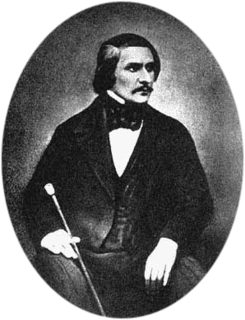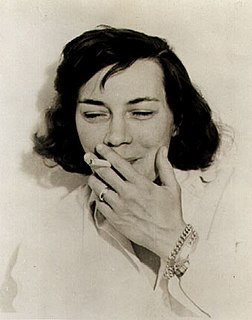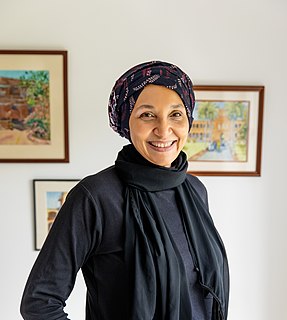A Quote by Nikolai Gogol
Like all of us sinners, General Betrishchev was endowed with many virtues and many defects. Both the one and the other were scattered through him in a sort of picturesque disorder. Self-sacrifice, magnanimity in decisive moments, courage, intelligence--and with all that, a generous mixture of self-love, ambition, vanity, petty personal ticklishness, and a good many of those things which a man simply cannot do without.
Quote Topics
Ambition
Both
Cannot
Courage
Decisive
Decisive Moments
Defects
Disorder
Endowed
General
Generous
Good
Good Man
Him
Intelligence
Like
Love
Magnanimity
Man
Many
Mixture
Moments
Other
Personal
Petty
Picturesque
Sacrifice
Scattered
Self
Self-Love
Self-Sacrifice
Simply
Sinners
Sort
Things
Those
Through
Us
Vanity
Virtues
Were
Which
Without
Related Quotes
The definitions of humanism are many, but let us here take it to be the attitude of those men who think it an advantage to live in society, and, at that, in a complex and highly developed society, and who believe that man fulfills his nature and reaches his proper stature in this circumstance. The personal virtues which humanism cherishes are intelligence, amenity, and tolerance; the particular courage it asks for is that which is exercised in the support of these virtues. The qualities of intelligence which it chiefly prizes are modulation and flexibility.
But there were too many points at which the other self could invade the self he wanted to preserve, and there were too many forms of invasion: certain words, sounds, lights, actions his hands or feet performed, and if he did nothing at all, heard and saw nothing, the shouting of some triumphant inner voice that shocked him and cowed him.
Which is recorded of Socrates, that he was able both to abstain from, and to enjoy, those things which many are too weak to abstain from, and cannot enjoy without excess. But to be strong enough both to bear the one and to be sober in the other is the mark of a man who has a perfect and invincible soul.
In a man like Friedrich von Schlegel the courage to be as an individual self produced complete neglect of participation, but it also produced, in reaction to the emptiness of this self-affirmation, the desire to return to a collective. Schlegel, and with him many extreme individualists in the last hundred years, became Roman Catholics. The courage to be as oneself broke down, and one turned to an institutional embodiment of the courage to be as a part.
My brother need not be idealized, or enlarged in death beyond what he was in life; to be remembered simply as a good and decent man, who saw wrong and tried to right it, saw suffering and tried to heal it, saw war and tried to stop it. Those of us who loved him and who take him to his rest today, pray that what he was to us and what he wished for others will some day come to pass for all the world. As he said many times, in many parts of this nation, to those he touched and who sought to touch him: "Some men see things as they are and say why. I dream things that never were and say why not."
I can honestly say that there are many forms of atheism that I find far more admirable than many forms of Christianity or of religion in general. But atheism that consists entirely in vacuous arguments afloat on oceans of historical ignorance, made turbulent by storms of strident self-righteousness, is as contemptible as any other form of dreary fundamentalism. And it is sometimes difficult, frankly, to be perfectly generous in one’s response to the sort of invective currently fashionable among the devoutly undevout, or to the sort of historical misrepresentations it typically involves.
That which especially distinguishes a high order of man from a low order of man, that which constitutes human goodness, human nobleness, is surely not the degree of enlightenment with which men pursue their own advantage; but it is self-forgetfulness; it is self-sacrifice; it is the disregard of personal pleasure, personal indulgence, personal advantage, remote or present, because some other line of conduct is more right.
Intimacy requires courage because risk is inescapable. We cannot know at the outset how the relationship will affect us. Like a chemical mixture, if one of us is changed, both of us will be. Will we grow in self-actualization, or will it destroy us? The one thing we can be certain of is that if we let ourselves fully into the relationship for good or evil, we will not come out unaffected.
I am convinced that courage is the most important of all the virtues. Because without courage, you cannot practice any other virtue consistently. You can be kind for a while; you can be generous for a while; you can be just for a while, or merciful for a while, even loving for a while. But it is only with courage that you can be persistently and insistently kind and generous and fair.





































